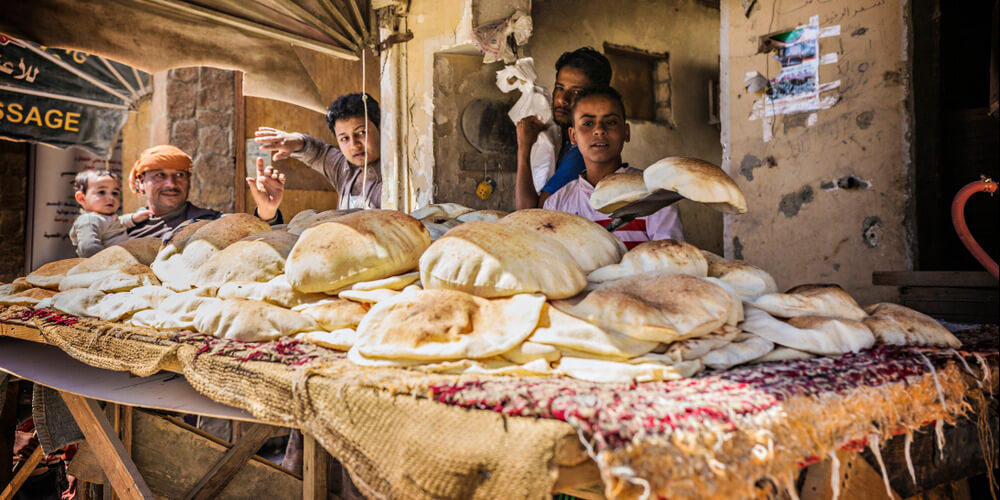
Newswrap: Halal industry
Egypt mulls banning food waste; Brazilian food giant JBS expands in the Middle East; Malaysia to expand palm oil share in EU; Crescent Foods enters partnership with Meijer stores; Shariah Experts Ltd issues NFT-based halal compliance certification.
Egypt mulls draft law banning food waste
Egypt’s House of Representatives is drafting a law on food regulation and waste prevention, reported Egypt Today. The law is aimed at prohiting food waste and encouraging redistribution and recycling. The draft law includes fines for businesses that waste edible food, ranging from EGP100,000 ($5,412) to EGP 500,000 ($27,060). According to Egyptian Streets, Egypt’s food waste per capita reached 91 kg in 2021, up from 73 kg in 2017, based on data from the Barilla Center for Food and Nutrition (BCFN). The UN’s Food and Agricultural Organisation (FAO) cites the country’s rapid population growth – at 2 million people a year, reaching 103.25 million in 2022 - as a major factor behind increased food consumption and unregulated waste. At a regional level, a FAO report showed that the MENA imports over 50% of its food yet wastes up to a third of the food produced and imported.
Crescent Foods enters partnership with Meijer stores
US-based halal hand-cut meat and poultry producer Crescent Foods announced a strategic partnership with Midwest-based retailer, Meijer, according to a press release. Offering a robust line of chicken products in more than 258 stores throughout Michigan, Illinois, Indiana, Kentucky, Ohio, and Wisconsin, products are now available in-store. Crescent Foods is well-poised to meet demand for all conscientious consumers—in addition to those seeking premium halal hand-cut products, for which demand continues to grow. The fresh chicken products include no antibiotics, vegetable- and grain-based diet (no animal byproducts), adherence to strict animal welfare standards, all natural, and no artificial ingredients or preservatives.
Brazil’s JBS expands in the Middle East
Sao Paulo-based JBS, the largest meat supplier in the world, acquired facilities in Saudi Arabia and the United Arab Emirates, according to Bloomberg. The halal-certified facilities will produce frozen food, including beef, chicken, vegetables and fruits. Bloomberg reported that “JBS is also creating its own distribution network in the region, with the acquisition of three companies to place its products in Saudi Arabia, the UAE and Kuwait. Values were not disclosed.” JBS is reportedly aiming to be a market leader in the halal sector. JBS’ Brazilian rival, BRF, a major chicken and processed food manufacturer, entered into a joint venture with Saudi Arabia’s Public Investment Fund (PIF) at the beginning of 2022.
Malaysia aims to recoup palm oil market share in Europe
Malaysia plans to leverage the global shortage of edible oil and “political tension in Europe” to recoup market share of palm oil following losses due to buyers avoiding the product over environmental concerns, Reuters reported. Malaysia is the world’s second largest palm oil producer after Indonesia, which banned exports of the commodity earlier this month.
"It is time we step up efforts to counter adverse propaganda to undermine palm oil's credibility and for us to showcase the numerous health benefits the golden oil has to offer," said Zuraida Kamaruddin, Malaysian Minister for Plantation Industries and Commodities, in a statement. She added that Malaysia will undertake "aggressive efforts and campaigns" to “fill the global supply gap in the long run”. The European Union (EU), the world's third-biggest buyer of palm oil is set to phase out palm oil-based biofuels by 2030, while some food companies have introduced “palm oil-free products.”
Reuters stated that Kuala Lumpur and Jakarta consider EU restrictions on palm oil-based biofuels as “discriminatory and have launched separate cases with the World Trade Organisation.”
Shariah Experts Ltd issues NFT-based halal compliance certification
London-based Shariah Experts Ltd, a halal advisory firm, has launched the “world’s first” non-fungible token (NFT) halal compliance certification on MRHB DeFI’s SouqNFT. The NFT certificates are minted and issued by Shariah Experts Ltd., with Singapore-based gold crypto platform Cache.Gold the first receiver of the halal certification in the NFT format, reported Global Newswire.
“Shariah Experts believe that tokenization of certificates in the form of NFTs can bring more transparency and auditability; hence more confidence and trust which is much needed in the halal industry. NFTs can help prevent forgery and cumbersome authentication methods and slow verification processes,” Dr Farrukh Habib, Co-founder of Shariah Experts, is quoted as saying.“Other methods are prone to multiple points of failure along the way, such as loss or destruction of a paper or digital certificate. NFTs are a more streamlined and permanent solution.”
